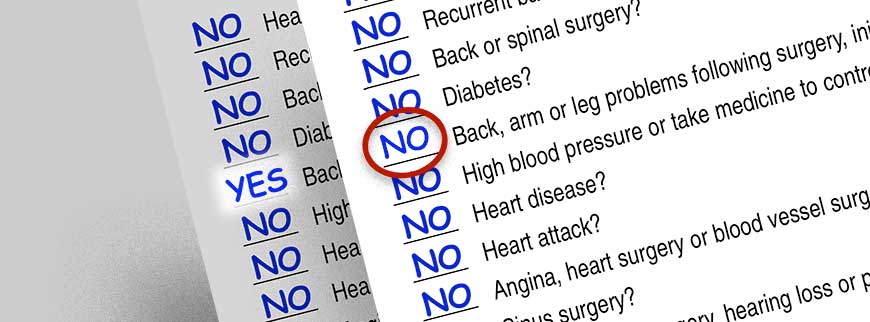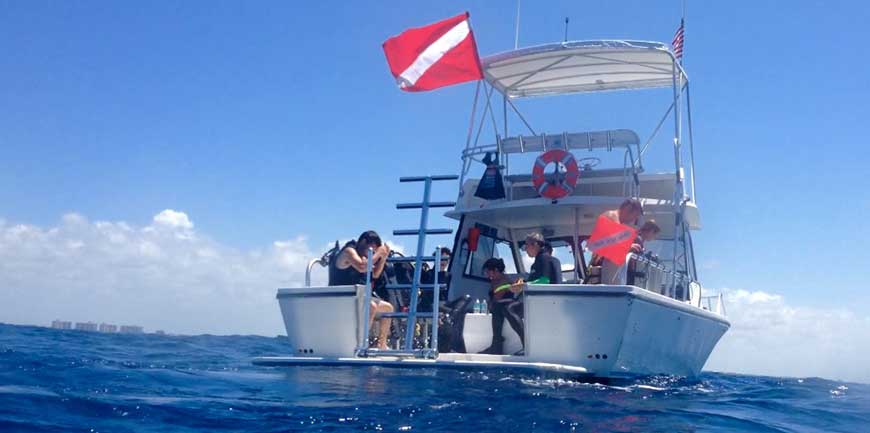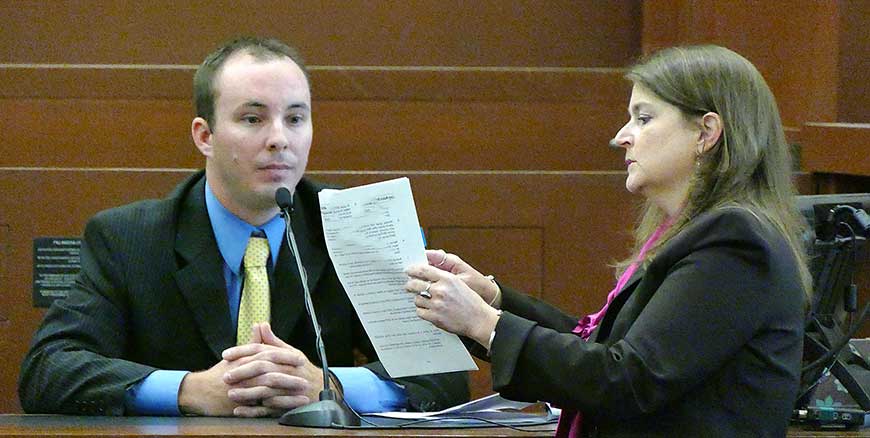 Last week I posted an article on the bitter realities of risk management for dive instructors. A large part of that article was devoted to paperwork and, in particular, the vital importance of getting students to complete the Medical History form accurately and honestly. Shortly afterward. an instructor from — well, we’ll just say “somewhere out west” — contacted me with a story of stupidity so unbelievable it boggles the mind.
Last week I posted an article on the bitter realities of risk management for dive instructors. A large part of that article was devoted to paperwork and, in particular, the vital importance of getting students to complete the Medical History form accurately and honestly. Shortly afterward. an instructor from — well, we’ll just say “somewhere out west” — contacted me with a story of stupidity so unbelievable it boggles the mind.
Of, as they say, “You can’t make up shit like this.”
The instructor’s story
The instructor related how he makes it a policy to go through student folders several days prior to the start of each class to look for potential problems. In one particular instance, he discovered that a student had answered YES to having surgery in an area that could significantly increase his risk of decompression sickness. The instructor called the student, giving him the bad news: He would have to secure a physician’s approval prior to taking part in any in-water activities.
Fast forward to the first night of class. The instructor re-checks the student’s folder. He discovers it contains a brand-new medical form. Does the new form have a physician’s signature? No. Has the previous YES that appeared on the form been replaced with a NO? What do you think?

When the instructor explained to the student that changing a YES to a NO doesn’t magically erase the effects of major surgery, the student’s response was, “The store owner told me to do it.”
The instructor’s response? “Not if I’m the one responsible for you.”
So now my story…
In 2006, I took a group of divers from the Chicago area to Cozumel. Among the divers was a 65-year-old male who had not been in the water in nearly a year.
The first dive of the trip was a shallow warm-up in ten feet of water, behind the hotel. The next dive the following morning was along the Palancar wall. Max depth was less than 80 feet, and the depth got progressively shallower toward the end. Bottom time was less than 35 minutes, with a slow ascent and safety stop at the end. In other words, reasonable.

Shortly after surfacing, the diver emerged from the head and announced, “I don’t feel so good.” He then reached for an overhead stanchion, but instead collapsed to the deck. His breathing was shallow and labored, and he complained of numbness in his lower extremities.
What followed was a textbook example of what you want to have happen in a case of DCS. Before I could ask, the divemaster was at my side with a liter of bottled water and the O2 kit. We had the diver drink the water and then put him on O2. Meanwhile, the boat began high-tailing it to the nearest dock and radioed ahead for an ambulance to meet us.

Five minutes later we were at the dock with the ambulance waiting. Less than 35 minutes from the onset of symptoms, the diver was in the chamber and locked down. Following two more chamber rides, he had a complete remission of symptoms — although I’m pretty sure his diving days were over.
So what happened? It turns out that, six moths previously, the diver had spinal surgery, but assumed this would not be a problem. He was wrong. There was apparently scar tissue as a result of the surgery that interfered with offgassing. The result was a severe DCS hit.

The good news was that the diver accepted full responsibility for his situation and had nothing but praise for all involved. He was fully insured so, other than losing out on a trip, it was not a financial hardship. And, while I’m sure he was disappointed, he would be the first to tell you what happened beats being paralyzed for life.
These days, many dive resorts and, especially, liveaboards require that divers complete the standard RSTC/UHMS Medical History form prior to their trip. And, just as with a scuba class, if the diver answers YES to any question, they need to secure a physician’s approval ahead of time. This is still not a widespread standard of practice, though. It was even less so ten years ago. This is too bad, as it could have prevented this situation from ever happening.
A lawsuit averted
Let’s take the case of the student in our first story. Had his instructor let this student’s medical condition slide, he could have very easily ended up like the diver in my story. As this would have directly impacted his ability to earn a living and provide for his family, it’s a near certainty somebody would have gotten sued.

Can you imagine how this would have played out in a court of law? (Assuming the insurance company would even let it get that far before opting for a huge settlement?)
- Lawyer: “Can you tell the jury what your current medical condition is?”
- Victim: “I’m paralyzed from the waist down and confined to a wheelchair.”
- Lawyer: “And how has that impacted you economically?”
- Victim: “I can’t work any more, the bank is threatening to foreclose on the house, and I’ve had to tap into the kids’ college fund just to keep food on the table.”
- Lawyer: “How else has this injury affected you?”
- Victim: “Well…let’s just say that things in the bedroom aren’t what they used to be.”
- Lawyer: “And what caused your paralysis?”
- Victim: “I got bent while diving.”
- Lawyer: “What caused you to get bent?”
- Victim: “According to the doctor, scar tissue from prior surgery.”

- Lawyer: “Did you report this surgery on your Medical History form?”
- Victim: “Initially, yes.”
- Lawyer: “Then what happened?”
- Victim: “The dive store owner told me to change it. He said it wasn’t something I needed to worry about.”
- Lawyer: “To the best of your knowledge, is the dive store owner a licensed physician.”
- Victim: “No. But he was an experienced diver, so I believed him.”
- Lawyer: “What would have happened had the store owner not told you to change your medical form?”
- Victim: “My instructor would have made me get a doctor’s signature in order to take the course.”
- Lawyer: “I see. And what would have been the result of that?”
- Victim: “I wouldn’t have been able to get a doctor to sign the form and I would not have been allowed to dive.”

- Lawyer: “But you’s still be able to walk, hold down a job and have normal relations with your wife…correct?”
- Victim: “That’s correct.”
- Lawyer: “So why you lost all of these things comes down to the fact the dive store owner told you to lie on your medical form and that it was not something you had to worry about.”
- Victim: “Yes. Absolutely.”
- Lawyer: “No further questions, your Honor.”

I’m told that the dive store owner wasn’t very happy with the instructor for sticking to his guns. I don’t know about you, but I think he owes the instructor a huge apology.
